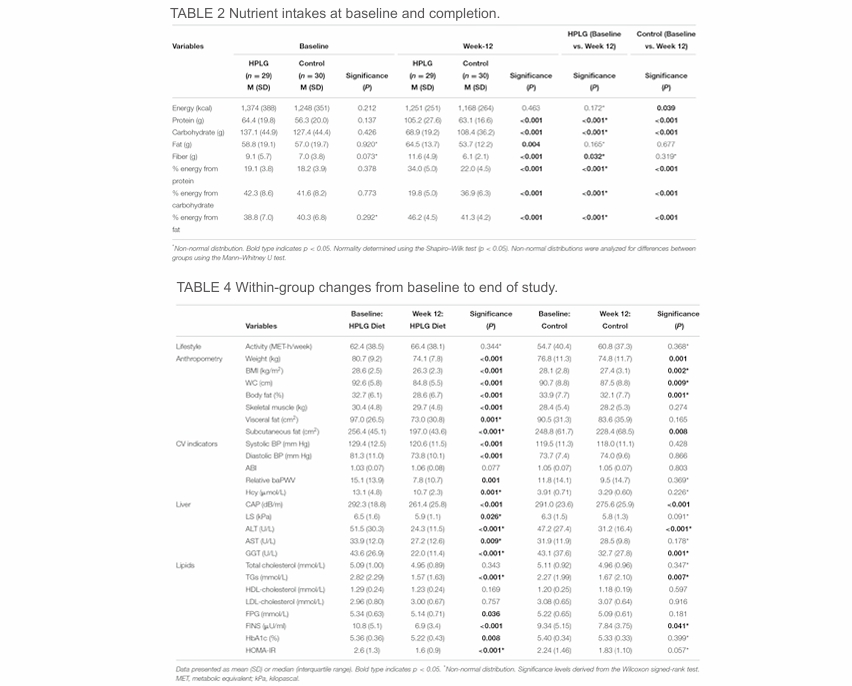
•A 12-week controlled, parallel-group, randomized intervention trial was performed.
•A number of 63 participants with MAFLD were enrolled and randomized between the HPLG dietary group and the balanced diet control group.
•Both diets had the same hypocaloric level and were prescribed ad libitum within food limit lists. The primary outcome was CAP.

•In this trial, protein and carbohydrate intakes were significantly higher and lower, respectively, in the HPLG group compared to controls (p < 0.001).
•At week 12, CAP was significantly reduced in both groups (p < 0.001). However, a significantly greater reduction in liver fat was observed in the HPLG group compared to the control group (p = 0.011), with mean relative reductions of 30.90 dB/m (95% CI, 21.53 to 40.26, p < 0.001) and 15.43 dB/m (95% CI, 7.57 to 23.30, p < 0.001), respectively.
